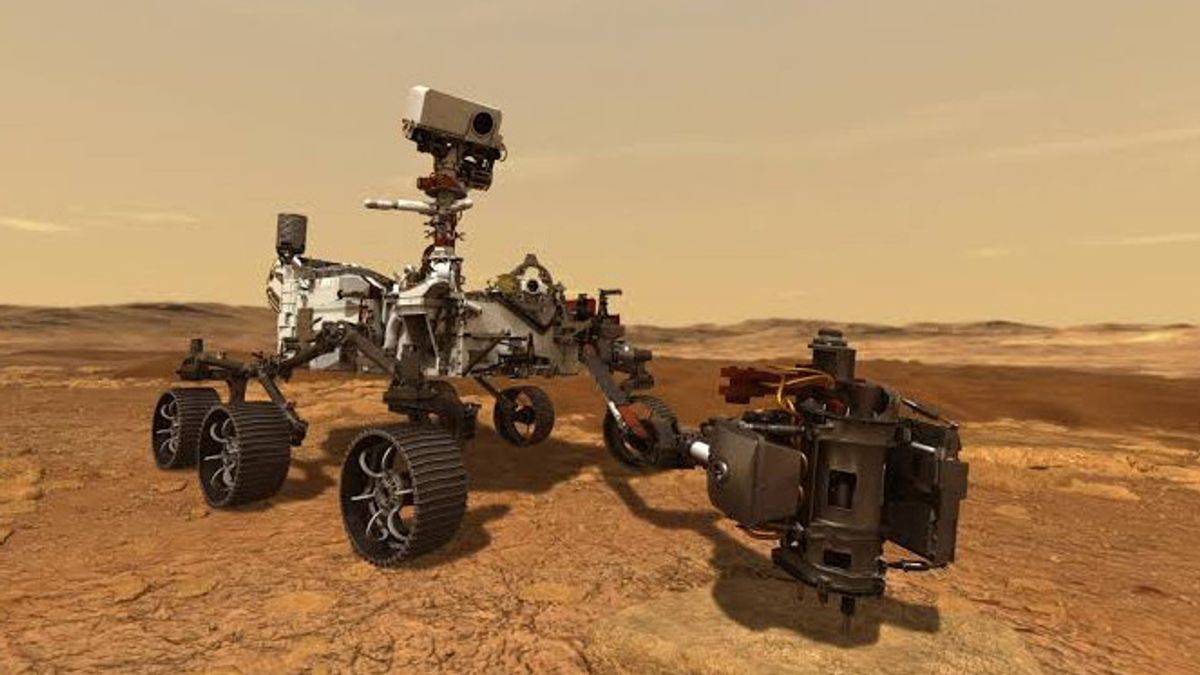JAKARTA - Since landing on Mars more than a year ago, NASA's Perseverance rover has been using its microphone to pick up sounds from the Red Planet. This includes strong winds and hum that permeates the atmosphere.
Now the recordings have helped scientists discover that sound travels on Mars differently than on Earth.
Perseverance, however, has discovered that sound travels much slower on Mars than on Earth and that things are unpredictable which end up having strange ways of communicating on this planet.
According to a study in a paper published in the journal Nature last week, sound waves travel more slowly through the Martian atmosphere than they do on Earth.
Scientists from Los Alamos National Laboratory, a US Department of Energy facility in New Mexico, used the microphone on Perseverance's SuperCam instrument to take measurements, and revealed that high-pitched sounds travel faster on Mars than lower-pitched ones.
This strange behavior, scientists say, can be explained by thermal fluctuations in the first 6 miles (10 kilometers) of the Martian atmosphere above the planet's surface. During the day, when sunlight shines on and warms Martian rock, convective winds and turbulence stir this layer of Martian air, also known as the Planetary Boundary Layer.
This changes the behavior of the carbon dioxide molecule. Mars' atmosphere contains 96 percent carbon dioxide, but the atmospheric pressure there is very low. In comparison, Earth's much denser atmosphere contains only 0.041 percent carbon dioxide.
"Due to the unique nature of carbon dioxide molecules at low pressure, Mars is the only terrestrial planetary atmosphere in the solar system that experiences a change in the speed of sound right in the middle of the audible bandwidth (20 Hertz to 20,000 Hertz)," the scientists wrote in the paper. quoted from Space, Monday, April 4.
At frequencies above 240 Hertz, the collision-activated vibrational mode of the carbon dioxide molecule does not have enough time to relax, or return to its original state.
"This produces sound waves at higher frequencies that travel more than 32 feet per second (10 m/s) faster than lower frequencies," the scientists said.
This means that when you listen to music far away on Mars, you will hear high-pitched sounds before hearing low-pitched ones.
The findings are quite interesting, and scientists plan to continue using the SuperCam microphone data to observe how things like daily and seasonal variations can affect the speed of sound on Mars.
The English, Chinese, Japanese, Arabic, and French versions are automatically generated by the AI. So there may still be inaccuracies in translating, please always see Indonesian as our main language. (system supported by DigitalSiber.id)













